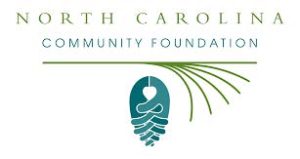During a disaster, you may need to leave your home and stay in a shelter or hotel. Or you may return to find your home inaccessible to you. Laws protect your right to use and enjoy temporary housing and shelters after a disaster, just as anyone without a disability. Continue reading to find out more.
Staying at a Hotel or Shelter: Your rights during or after a Disaster
The Americans with Disabilities Act (ADA) is a law that gives you the right to use and enjoy the same public places and services as anyone without a disability.
What does that mean to me right now?
1. You have the right to full and equal access to most hotels and shelters.
- Full access means being able to enter the building and to have what you need while you are there.
Examples
- If you have diabetes or another medical condition, you might need a special diet.
- If you have autism and need to get away from noise, you may request a quiet space, ear plugs or headphones.
2. A shelter or hotel cannot refuse your service animal.
- A hotel or shelter must change its “no pets” policy for you.
- Only dogs and miniature horses can be service animals under the ADA.
3. A shelter or hotel cannot turn you away if you do not have a driver’s license because
of your disability.
Your Rights under the Federal Fair Housing Act and How It Impacts Where You Live
The FHA protects you from discrimination when you rent housing, including temporary
housing. This means that you cannot be denied housing because of your disability. It
also means that you can ask for changes to rental policies if you need. In addition to the
FHA, you also have protections under Section 504 of the Rehabilitation Act (Section 504). Section 504 prohibits discrimination on the basis of disability.
Any federal government agency must ensure that people with disabilities are not being
discriminated against on the basis of disability in all federal government programs
and activities. This means that all services provided by the FEMA (Federal Emergency
Management Agency) or any other government agency must be accessible to you,
regardless of your disability.
What does this mean to me right now?
1. You can end your lease right away if damage from the storm makes it hard for you to
return to your home.
- Make your request in writing (e-mail or by letter. Always keep a copy). View a sample letter.
- Voucher Holders – Please note: If you are receiving a housing choice voucher, or any other type of government financial housing assistance, you will need to make
your request to the local housing authority or governmental housing agency that
gave you a voucher.
2. You have rights while staying at housing provided by the FEMA (Federal Emergency
Management Agency) or any other government agency.
- If you have trouble getting into or using your emergency housing because of your
disability, you can ask the agency to make it accessible to you.
Examples
- If you have a mobility impairment, you can have ramps built or doors widened.
- If you need a walk-in shower instead of a tub, you can ask them to give you one.
View Easy Read version of this handout.
Sample Letter Requesting Reasonable Accommodation under the Fair Housing Act for Early Lease Termination
Sample Letter Requesting Early Termination of Lease
PDFs of this handout for printing
Housing and Shelter Rights after a Disaster
These handouts are available in Braille and/or on audio tape upon request.
Funding
This Hurricane Florence recovery project was funded in part by a grant from the American Red Cross.

Additional Funding
Additional funding provided by the Center for Disaster Philanthropy and the NC Community Foundation.

Disability Rights North Carolina strives to update its materials on an annual basis,
and this handout is based upon the law at the time it was written. The law changes
frequently and is subject to various interpretations by different courts. Future changes in
the law may make some information in this handout inaccurate.
